Echoes of wisdom: The enduring legacy of Napa Valley's inspirational educators
Intro by Tim Carl and content by Lowell Young
Editor’s note: Before we delve into Lowell Young's inaugural contribution to Napa Valley Features where he examines Kathleen Scavone's book "Anderson Marsh State Historic Park," let me offer a brief, personal introduction to those unfamiliar with Lowell.
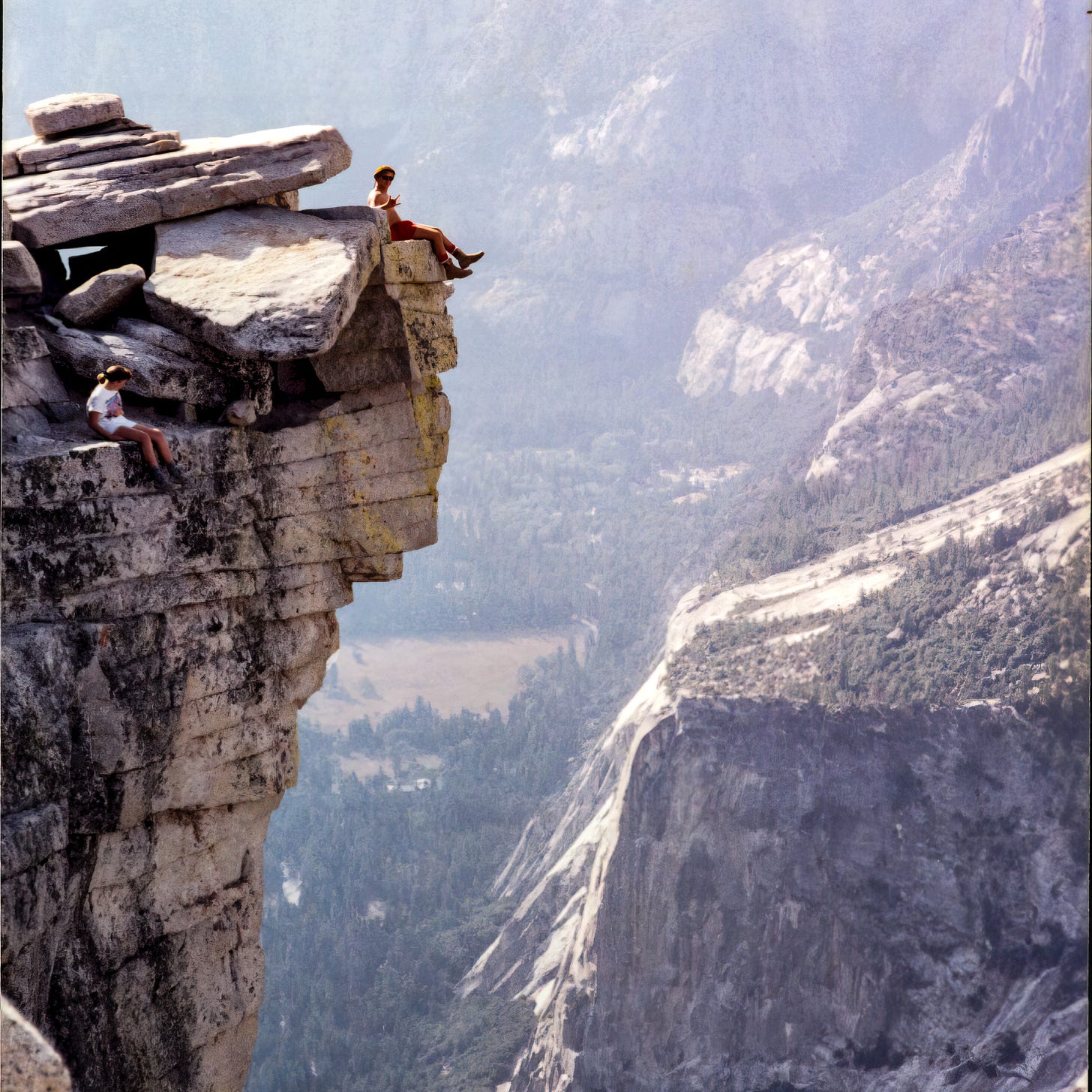
For those who grew up in St. Helena between the 1970s and late 1990s, the name Lowell Young resonates deeply. Renowned for his innovative teaching methods and deep bond with the natural world, Lowell, the author of "Biodesign Out for A Walk" and a revered biology teacher, has illuminated the paths of numerous students, including me — Tim Carl.
Lowell's Biodesign class was more than a curriculum; it was a journey into the art, science and mystery of biology. He led us beyond the confines of conventional learning, challenging students to explore not just the physical, spiritual and intellectual realms, but the synthesis of all three. As a young scientist under his tutelage, I found Lowell’s mentorship pivotal. His allowing me to immerse myself in his class over multiple years and later as a classroom aide marked a significant chapter in my life, and in the lives of many other young students.
The essence of Lowell’s teaching is beautifully encapsulated in the words of some of the greatest thinkers, which he often shared with a unique blend of seriousness and a half-contained laugh.
Quotes from eminent figures like Albert Einstein and Isaac Newton flowed from Lowell's lips, sparking curiosity and wonder in us as young students, since we'd never heard such profound interest and curiosity from most of the grownups in our lives. But there he was, when we were freshmen in high school, challenging us to explore the mysteries of life under an umbrella of philosophical interconnectedness and gratitude.
We might hear words from Henry David Thoreau: “I sat at a table where were rich food and wine in abundance, and obsequious attendance, but sincerity and truth were not; and I went away hungry from the inhospitable board.” Or those from Annie Dillard: “You've got to jump off cliffs all the time and build your wings on the way down.”
However, what truly captivated my interest was Lowell's passion for John Muir. He frequently quoted Muir's insightful observation: "In every walk with nature, one receives far more than he seeks." This not only reflected Lowell's deep appreciation for the endless teaching’s nature provides but also ignited my own eagerness to explore and understand the natural world around me.
Lowell would often remind us, through Thoreau’s words, to "Go confidently in the direction of your dreams! Live the life you've imagined." This served as a beacon, encouraging us to pursue our passions with conviction. And in the spirit of Loren Eiseley’s reflection – “Perhaps he knew, there in the grass by the waters, that he had before him an immense journey” – Lowell instilled in us the anticipation of life’s endless explorations.
Even Kahlil Gibran’s wisdom from "The Prophet," "No man can reveal to you aught but that which already lies half asleep in the dawning of your knowledge," found its way into Lowell's teachings, emphasizing the power of self-discovery. And James Allen’s insight from "As a Man Thinketh" — "Circumstances do not make the man, they reveal him" — was a constant reminder of our inherent capabilities.
Lowell and his wife, Christie, are reflective of the diversity and depth within the Napa Valley community. As a formal educator, Lowell collaborated with Christie, who also played an educational role, albeit in a different manner, through her 33-year tenure at Main St. Books in St. Helena. Christie was a key source of inspiration and contributed approximately 90% of the books and literature that became integral to the Biodesign curriculum, according to Lowell. In addition, she co-directed the class's excursions, which included annual hikes in the Grand Canyon and to Half Dome in Yosemite. As such, this quiet couple's dedication and service has nurtured a culture of curiosity, kindness and compassion.
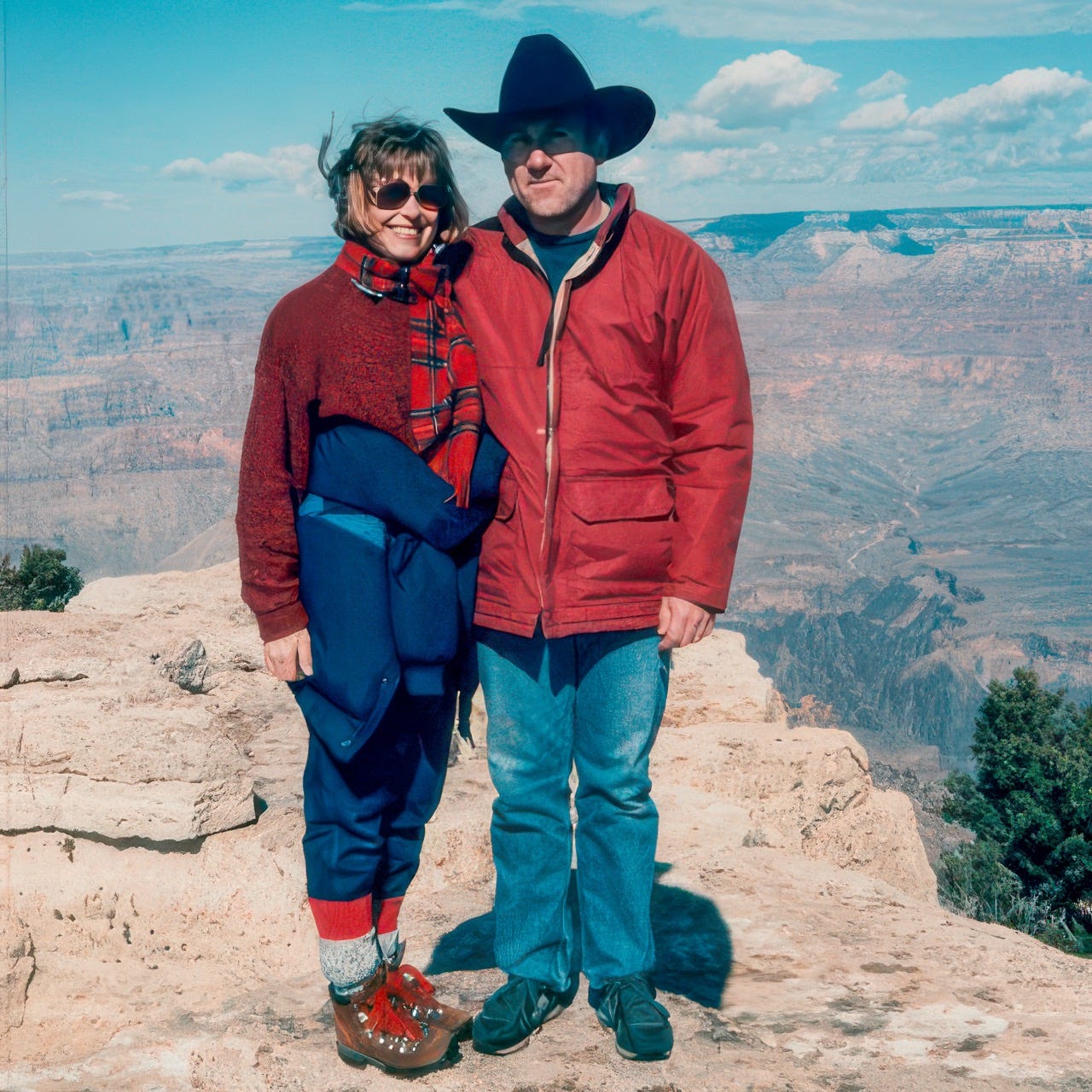
Spending time with them is like an immersion into another world where the wisdom of the past resonates in the present. Imagine finding yourself beside a gentle stream in a quiet woodland, notebook in hand, ready to capture the essence of the surrounding beauty in a series of sketches. In this imagined serene moment, picture dear old friends approaching with warm smiles. They sit down quietly beside you and take out their own sketchbooks. Together you listen to the symphony of nature, your pens dancing across the paper, the melodious murmur of the river and the soft rustling of leaves in the breeze above. This is what it is like to spend time with these two.
Young’s legacy in Napa Valley goes beyond the boundaries of a traditional educator. He is a mentor whose influence extends beyond the classroom, inspiring a deeper appreciation for life, nature and the human spirit. His impact, like the quotes he so fondly shares, will continue to resonate through generations, nurturing minds and spirits in this vibrant community we call home.
We are honored and grateful to share his thoughts about "Anderson Marsh State Historic Park,” a book by another Napa Valley Features contributor and former educator, Kathleen Scavone.
Reflections from a freshwater marsh
By Lowell H. Young
NAPA VALLEY, Calif. — Albert Einstein, acutely aware of our need for intimate social interaction, once wrote, "A hundred times every day I remind myself that my inner and outer life is based on the labors of others, living and dead, and that I must exert myself in order to give in the same measure as I have received and am still receiving."
Isaac Newton, pondering our interdependence, stated, "If I have seen further, it is by standing on the shoulders of giants."
The Biodesign class, a blend of enchantment and insight, stemmed from students and a teacher building upon the work of naturalist giants such as Loren Eiseley, John Muir, Annie Dillard, Henry Thoreau, Ralph Waldo Emerson and others.
And now I find that my path’s crossing with that of one of my former students is bringing me new joys. This newest journey began way back in 1981, when Tim Carl first participated in the biodesign experience. After absorbing invaluable lessons, undergoing transformations, and earning a Ph.D. in molecular and developmental genetics followed by a postdoctoral fellowship at Harvard University, Carl returned to Napa Valley to establish a successful winery.
Reconnecting recently, I discovered that Carl has embarked on yet another journey. Talking with him, I realized he attributes his success to myriad influential figures, a realization he echoed from Einstein and Newton, and during a reflective period, he had an epiphany: The Napa Valley is full of gifted and wise individuals. This inspired him to envision an online platform for these voices.
I signed on as a curious observer to Napa Valley Features, and after reading through the new platform, I discovered numerous compelling articles, including those by Scavone.
Intrigued by her book, "Anderson Marsh State Historical Park," and learning that Scavone was also a retired schoolteacher, I realized her work, whether she intended for it to or not, placed her in the pantheon of gifted naturalists such as those I listed above.
Scavone’s book transcends a mere ecological study, interweaving the complex dynamics of nature and human history and illuminating the marsh's ecosystem and its historical significance. Her narrative, blending environmental science principles with personal stories, notably highlights the Pomo Native Americans, thus enriching our dialogue and connection to both the environment and regional history. Her approach, merging ecological research with cultural storytelling, presents an engaging perspective on the symbiosis of nature and human history. The book not only emphasizes the marsh's biodiversity and the Pomo legacy but also urges readers to recognize our profound environmental connections and the importance of preserving these vital ecosystems.
An interesting aside: While I was writing this piece, the region was hit by an atmospheric-river event, causing widespread power outages. This incident, though disruptive, offered a moment of reflection on the resilience of Pomo families in their reed homes during storms, providing an enlightening and humbling lesson.
Beyond being a naturalist, educator and author, Scavone also developed the curriculum for Lake County Schools to accompany the Emmy Award-winning film "A Walk Through Time," an exceptional video featuring a young Pomo man humorously contrasting his 450th-generation Californian heritage with those claiming to be fifth generation.
His remark leads to a realization: Much like modern-day hummingbirds, which must fly to move even short distances, we have become overly reliant on technology and conveniences such as IT, planes, cars, the power grid, smartphones, and large-scale retail and agriculture. The thought that 325 million Americans could survive as the Pomo people did is unthinkable.
I would likely never have met Scavone or read her work were it not for this new online platform that celebrates local voices and stories. But like Muir, who viewed public recognition with skepticism, seeing it as being "propped up for the populace to gawk at," while Carl may shy away from recognition, this new proactive approach in encouraging appreciation and improvement of the values in Napa Valley and beyond is commendable.
If today's story captured your interest, explore these related articles:
Napa’s Matthiasson Winery and UC Davis Collaborate to Illuminate the Power of Insects
Beat the heat with a morning hike at Bothe-Napa Valley State Park
Black Sears family donates land to help create wildlife corridor
Lowell Young is a retired educator and naturalist living in St. Helena.
* "Rupert," is a comic series by Kathleen Scavone. Enjoy this clever and thoughtful work from a talented artist and writer.


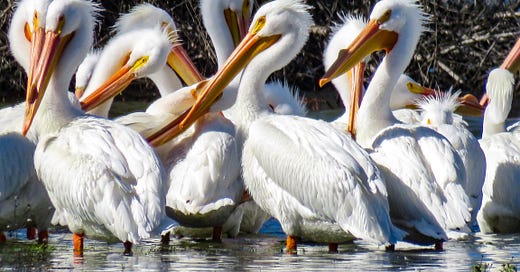



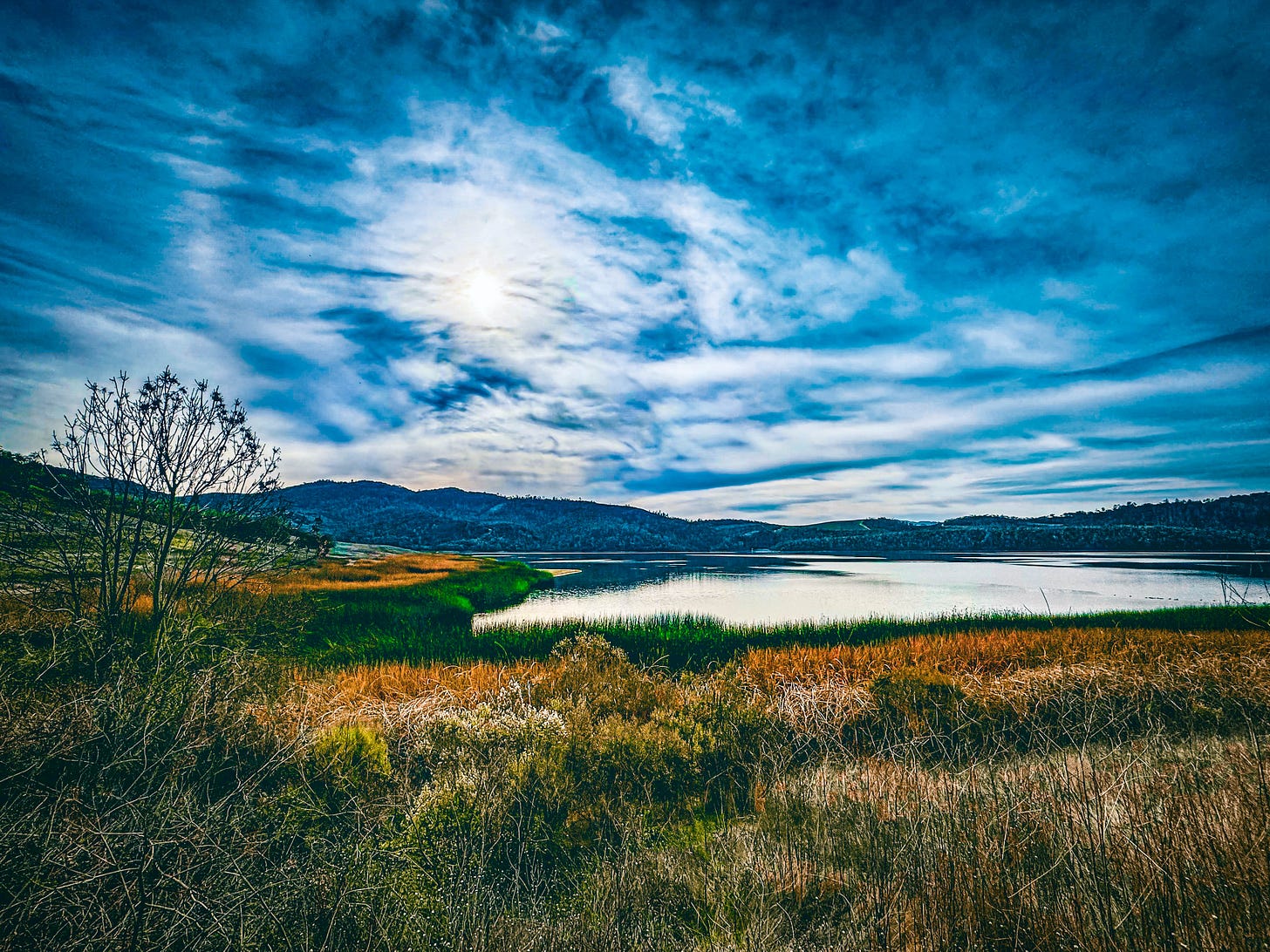
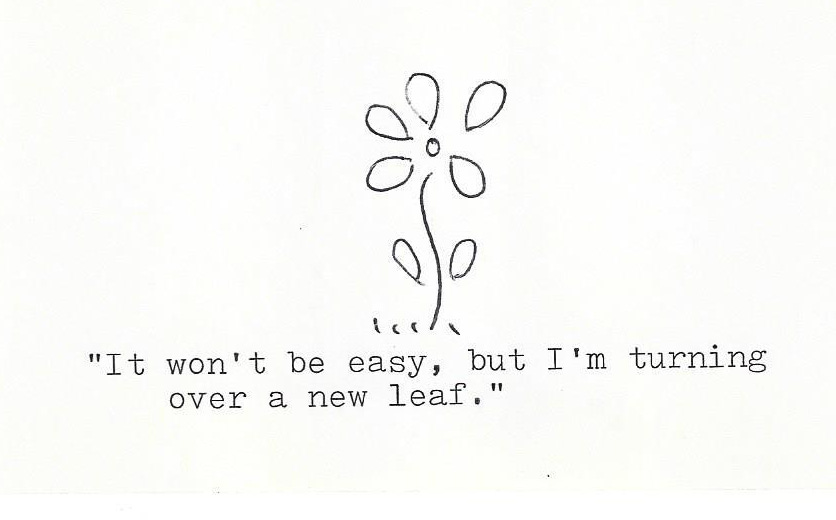
Glorious! Thank you.
I deeply enjoyed reading “Echoes of wisdom: …”